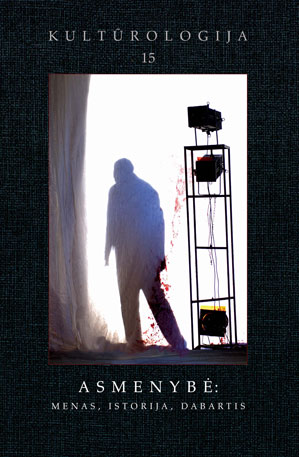Asmenybės kultas, tarybinė liaudis ir kūrėjas - kompozitorius. Pokario metų muzikinė spauda
The Cult of Personality, Soviet Society and Artist-Composer. Post-War Press on Music
Author(s): Inga JankauskienėSubject(s): Cultural history
Published by: Lietuvos kultūros tyrimų
Keywords: cult; personality; Soviet Society; artist-composer; post-war press; music
Summary/Abstract: This article analyses the rhetoric of 20th century post-war press dealing with music in Lithuania. Both a social and musical world was formed according to the ideological political norms of the period. This article brings to light the characteristics of the music press and its problems, direct dependence from the political events of the country (and the work style of the Soviet General Secretaries of the Communist Party - Joseph Stalin, Nikita Khrushchev, and Leonid Brezhnev). Attention will be focused not only on what was required to be written, but how it was written. The decades from the 1950s to the 1980s can be likened to a guide, allowing one to talk about common leading trends of the time in the music press, which are looked at from the perspective of participants of the process of music (clients, composers, and listeners). Research conducted of the period's press reveals the genesis summaries of the music public, denoted the changes in its perception: all at one time one can talk about the strong functioning of a cult (during Stalin's leadership of the Communist Party) and about the gradual conditional freedom of music's users, critics and creators, about musical topics, and the variety that was beginning to grow, the qualitative growth of press about music and the later maturity of the quality of the articles. Starting in the 70s, the average level of politisation in the music press lessened, while professionalism grew, and a double standard was entrenched. Lip service was paid to political events separately, but professional problems were dealth with more in depth. This article was written using a number of quotes from the press of the time, archival documents, and the scientific works of historians and art researchers. During the first decades after the post-war period, those living in Lithuania were forced to fit into the physical and moral norms of the Soviet reality. These were the years of when the totalitarian regime of the Soviets was entrenched. According to Soviet standards, there were attempts to reorganise the entire cultural life of the country. During the same period, efforts were taken to destroy ancient cultural traditions. Independent artists were forced to create artists' unions in 1940, which worked as a mechanism for controlling cultural life. We also selected information from the press of the time that show the changes in the musical life that were occuring, which best reflect the times affected by ideology, and the demands put upon artists by those in power. The article reveals the common trends of the "formalion" of the so-called "Soviet people and artists", which can be summed up in a few phrases: ideological repression, art and press that was commissioned, and the formation of double standards.
Journal: Kultūrologija
- Issue Year: 2007
- Issue No: 15
- Page Range: 273-305
- Page Count: 32
- Language: Lithuanian

